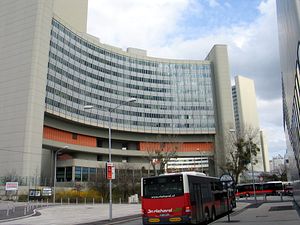India is currently in the process of ratifying an agreement with the International Atomic Energy Agency (IAEA) that would allow the international nuclear watchdog to oversee New Delhi’s civilian nuclear program with greater access than in the past. Specifically, India will ratify an additional protocol to the IAEA Safeguards Agreement it agreed to in 2009. “I can confirm that we are ratifying the Additional Protocol to the IAEA Safeguards Agreement,” noted Syed Akbaruddin, a spokesperson for the Ministry of External Affairs. According to the Wall Street Journal, “the ratification by India furthers a process under way for several years designed to allow India to have commercial relations with other countries in the civilian nuclear field.”
Following widespread international sanctions and condemnation for its nuclear weapons tests in 1998, India managed to normalize itself as a nuclear power outside of the Nuclear Non-Proliferation Treaty (NPT) in 2008 following a civil nuclear cooperation deal with the United States and receipt of a waiver from the Nuclear Suppliers Group. India currently holds a unique position among world nuclear powers given that is allowed to engage in normal civilian nuclear commerce despite its position outside the NPT regime. India currently abides by a self-enforced moratorium on nuclear testing and is engaged in civil nuclear cooperation with several countries.
The primary significance of this new deal with the IAEA is that it will serve to bolster the level of confidence other states will have in India’s ability to pursue civilian nuclear development in a responsible manner. While India has maintained a relatively clean record on nuclear proliferation, it has a long way to go in terms of nuclear materials security. In the Nuclear Threat Initiatives 2014 Security Index, India scored worse than both Pakistan and China for nuclear materials security. This agreement with the IAEA should, in theory, allow India to begin addressing some of its nuclear security deficits. Currently, India’s primarily lacks in the area of regulatory safeguards — many of its nuclear regulations are written as guidance instead of enforceable law.
Following India’s historic nuclear deal with the United States, it signed a limited safeguards agreement with the IAEA that gave the group access to India’s civilian nuclear facilities. As a non-signatory to the NPT, India’s military nuclear weapons facilities and programs are currently not inspected by the IAEA.
The IAEA deal also has important implications for India’s new government under Narendra Modi and the Bharatiya Janata Party-led (BJP) National Democratic Alliance (NDA), which pledged to improve India’s infrastructure, including nuclear power for civilian purposes. Expanding IAEA oversight of India’s civil nuclear program should allow India to conclude pending civil nuclear cooperation deals, which have been held up in part due to India’s unique status as a nuclear power outside the NPT. For example, India and Japan have been engaged in negotiations for a civil nuclear cooperation agreement for some years now. As the Wall Street Journal notes, allowing the IAEA greater scrutiny over India’s civil nuclear program could also help “India’s quest for membership in the Nuclear Suppliers Group.”
































